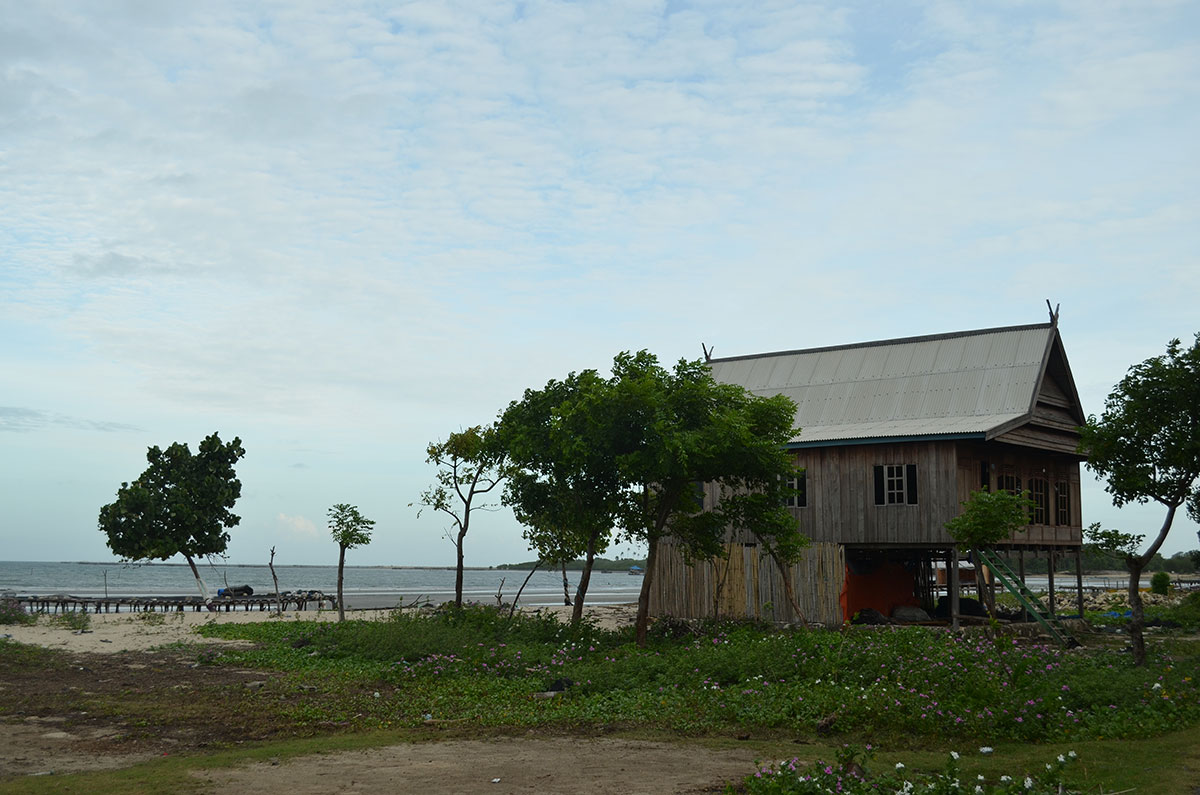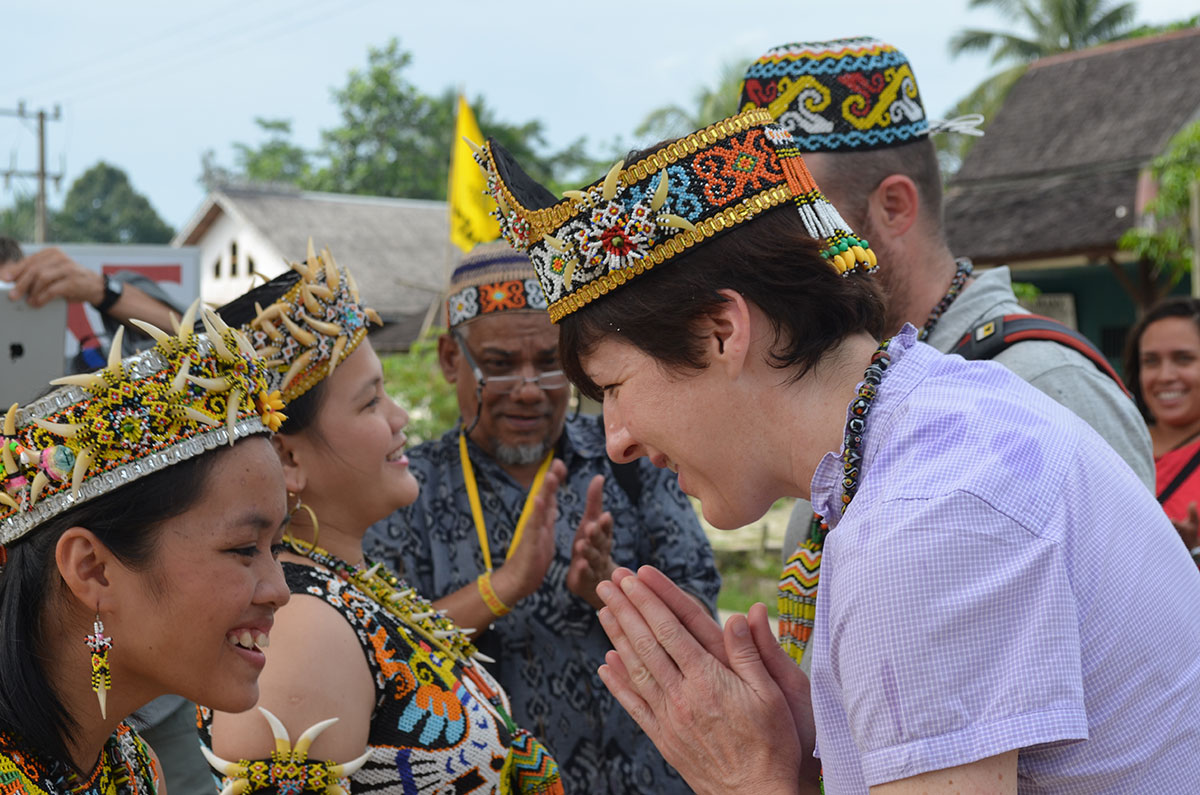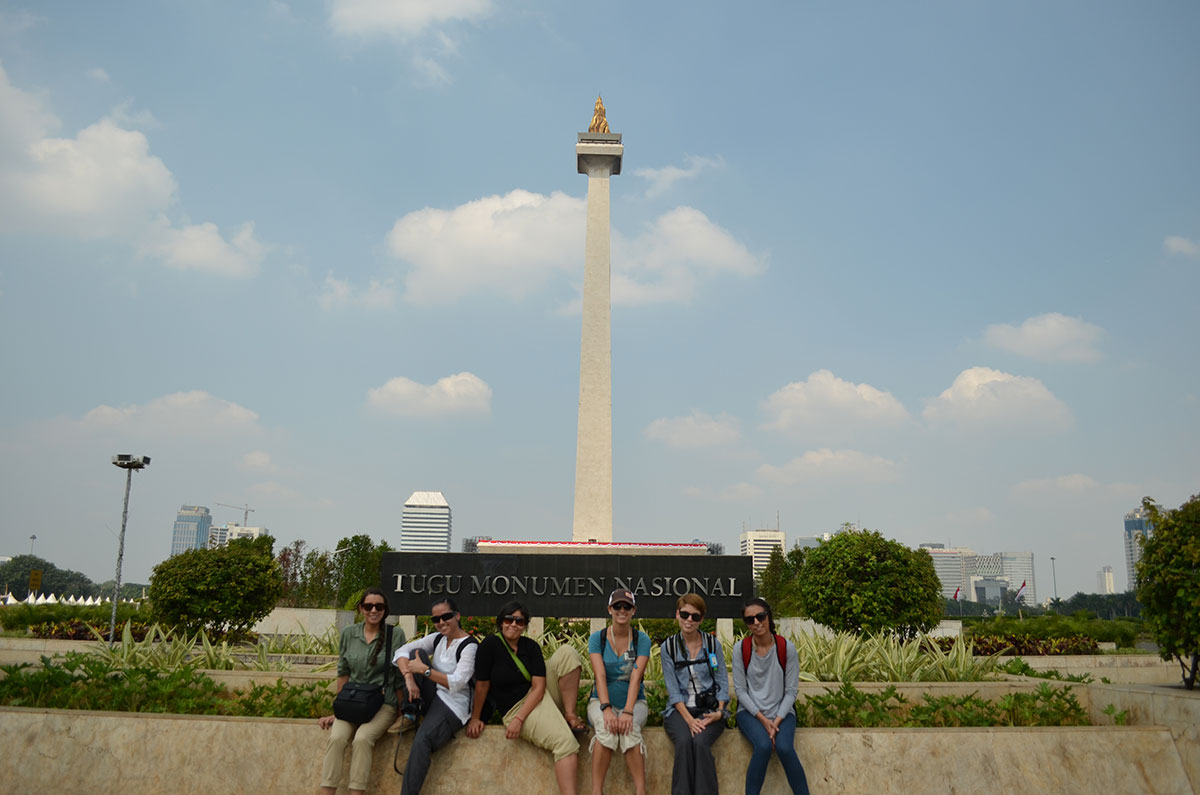
A house at the beach in Makassar, Sulawesi. (Valeria Hernandez/Borderzine.com)
EL PASO — In the dense tropical rainforest, nature softly enveloped the group of students — the wind sifting through braches and leaves, the singing of myriad insects and birds — a potent reminder that they were not in Texas anymore, but in Kutai National Park in the island of Borneo, in the East Kalimantan region of Indonesia.
“In 2009, I was finishing up my undergraduate degree in communication at UTEP and was still somewhat uncertain where my life was going. I had been admitted to the master’s program at the University of Colorado, but had no clue as to what I wanted to study,” said Carlos Tarin, 27. “Indonesia changed all of that.”
A college student’s life consists of homework assignments, computer issues and dreaded group projects. It’s unfortunate that not a lot of students are aware of the diverse opportunities for advancement offered by their universities.
Tarin traveled to Indonesia for the second time along with Cinthia Casillas, Lauren Pace, Leslie Landin and eight other students from multiple majors, to study abroad for three weeks this past June.
Stacey Sowards, chair of the Department of Communication at The University of Texas at El Paso, runs a faculty-led study abroad program held in Indonesia every summer, promoting change through conservation programs in the way people relate to their environment.
“I really benefited as a student from study abroad programs and Indonesia is such a diverse, unique and interesting place that I thought students would really benefit from visiting it,” said Sowards about her inspiration for the program. “It really helps people to see the world in a different way.”
Each summer, Sowards takes between 10 and 15 UTEP students to visit various islands in Indonesia. The program works closely with Rare, a non-governmental organization that develops and maintains conservation programs in over 50 countries, with a focus on embracing and sustaining change.

Stacey Sowards during the welcoming ceremony to the Dayak Dance Festival and local Dayak dancer in the Indonesian region of East Kalimantan. (Valeria Hernandez/Borderzine.com)
“I’ve been doing this program in Indonesia since 2003 and I’ve done about seven or eight,” said Sowards. “The long term benefits are harder to pinpoint than the immediate benefits, depending on the students’ maturity level.”
The program began in 2003 with only three students and has grown in the number of participating faculty and students, developed a clearer research focus and received funding through grants from the U.S. Agency for International Development.
“It’s a little more systematic and developed now. The benefit is still a huge benefit to that person; it’s just a matter of recognizing that people will get different things from it,” added Sowards.
The program, which is carried out by the Department of Biological Sciences and the Department of Communication, among other departments at UTEP has multiple projects. The topics are diverse, ranging from phenology to ecotourism and community development. These student-developed projects ultimately prove that traveling abroad has actually extended their knowledge.
“I wrote a conference paper that I am presenting at the National Communication Association’s (NCA) annual convention in Washington, D.C.,” said Lauren Pace, 24, a graduate student at UTEP. “I studied how men and women in Rare displayed agency when talking about their roles in their organization.”
Studying abroad can be very beneficial not only for students wishing to continue on to graduate school, but also for students looking to join the workforce after graduation.
“After traveling to Indonesia I realized that I’m extremely interested in how we can develop programs that effectively create positive behavior change that helps, not only environments thrive, but also the people living in those communities,” said Pace.
During this year’s three-week-program, the group visited national parks, including one night in Kutai National Park and four nights in West Bali National Park. The group also worked closely with the University of Mulawarman in Indonesia and participated in a four-day workshop in Makassar, Sulawesi, held by Rare, in which members and leaders of multiple campaigns from all over Indonesia came together in a hidden gem that was PPHL Puntondo, a recreational facility, to develop and improve their campaigns.
“I was very lucky to observe and learn about all the projects and campaigns that Rare is involved with during the workshop, and how passionate they are about conservation,” said public relations major, Cinthia Casillas, 24.
The potential benefits from traveling abroad and submerging yourself in a new culture are immense and irreplaceable. The study abroad office at UTEP not only offers study abroad opportunities in multiple fields, it also offers scholarships and other necessary help to students interested in traveling abroad.
“Going abroad for the summer completely changed my perspective about the word. I knew that from the moment we arrived in Jakarta and jumped inside that taxi, that this was going to be a life-changing experience,” said Casillas.

UTEP students during their trip to the National Monument in Jakarta, Indonesia, during their summer 2012 trip. (Left to right: Valeria Hernandez, Mitzel Garcia, Leslie Landin, Lauren Pace, Angela Vaughn and Cinthia Casillas)
Lectures on campus, his or her own research and other outside sources make up most of a college student’s resources for learning. But nothing compares to getting hands-on experience in a foreign country in the student’s area of interest.
“Being in Indonesia was like watching a movie and being able to physically touch the characters; it was real,” said Leslie Landin, 22, anthropology major at UTEP. “My commitment with environmental conservation became a shield that will not break as easily as before.”
There are two types of study abroad opportunities offered by the university, faculty-led programs and Study Abroad Office sponsored programs. Cost and length of the program depends on the location and type of program.
According to Niamh Minion, coordinator from the Study Abroad Office at UTEP, the university offered 10 faculty-led programs for 127 students in 2013. The study abroad office also offers exchange and third party programs in 58 countries. For the academic year of 2012-2013, a total of 82 students participated in study abroad office-sponsored programs.
The deadline for the 2014 Indonesia Study Abroad Program has not been released, but it is expected to be at the beginning of the year. Sowards says she encourages anybody who is open minded, patient and eager to be exposed to a brand new experience to apply.
“My entire perception of the world, its inhabitants (human and non-human), and the environment has been largely shaped by my experiences with this program,” said Tarin. “For that, I am forever grateful to Dr. Sowards and the opportunities she has afforded me as part of my own personal, intellectual, and professional development.”

